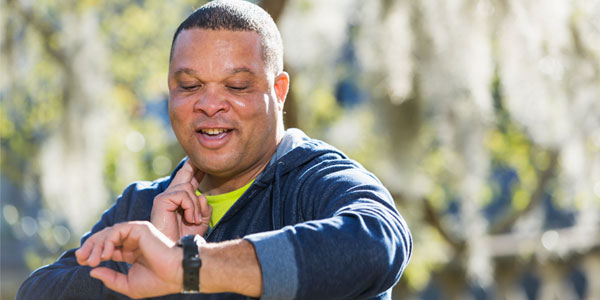Your heart rate is a measure of how many times your heart beats in a minute. For most people, a healthy resting heart rate (RHR) is between 50 and 90 beats per minute, but this number can vary depending on factors such as medication and your fitness level.
“Many people are familiar with how fast their heart beats when they exercise, through the use of common monitoring devices,” says Ronesh Sinha, M.D., an internal medicine physician at the Palo Alto Medical Foundation. “But how much do you know about your resting heart rate? This important number is one of the simplest ways to monitor your heart health. It can even help with stress management.”

The easiest way to measure your RHR is to put two fingers on the side of your neck or your wrist, count how many beats you feel for 15 seconds, and then multiply by four. Or you can download one of the many free smartphone apps that use your phone’s camera to detect your pulse in your fingertip. (If you want to confirm an app’s accuracy, check it against your wrist or neck pulse.)
What can your heart rate tell you?









